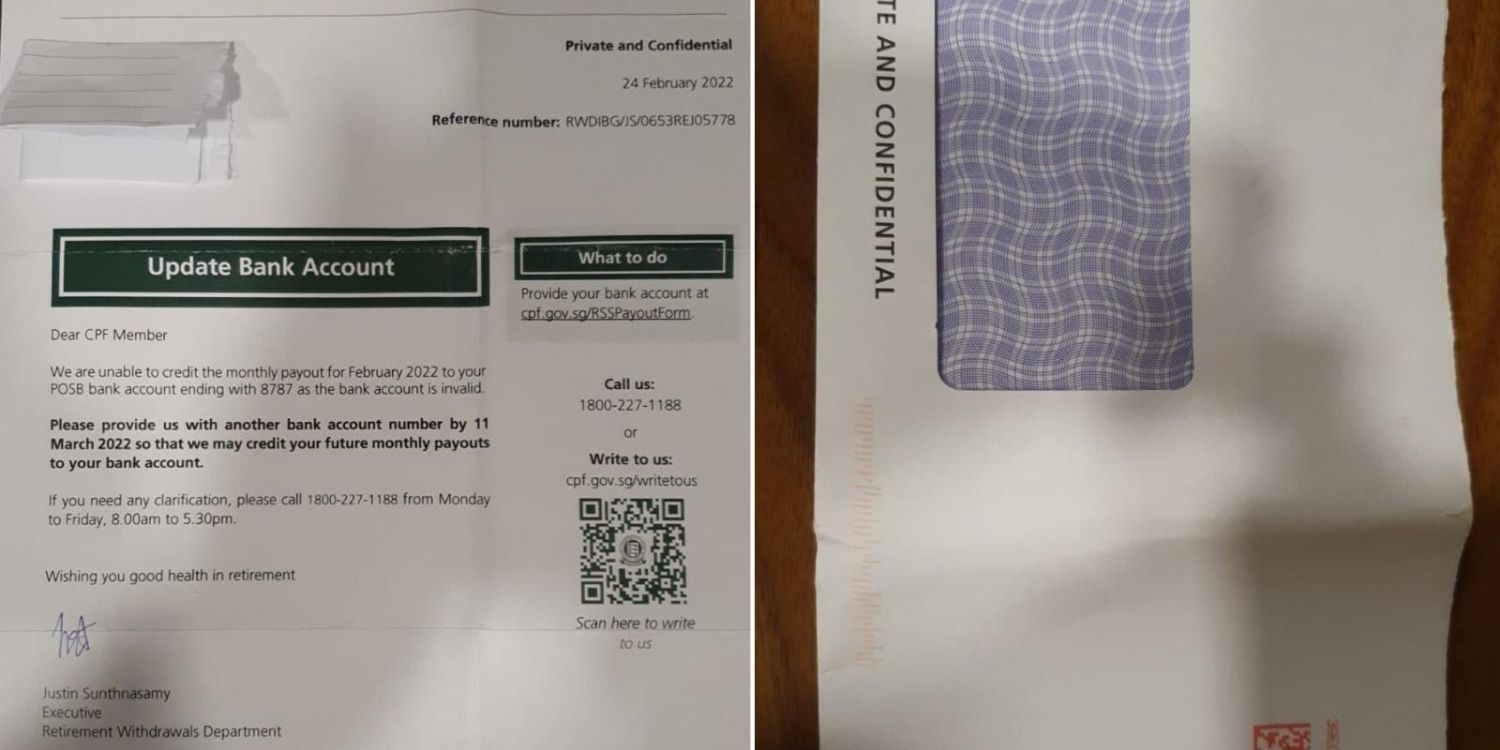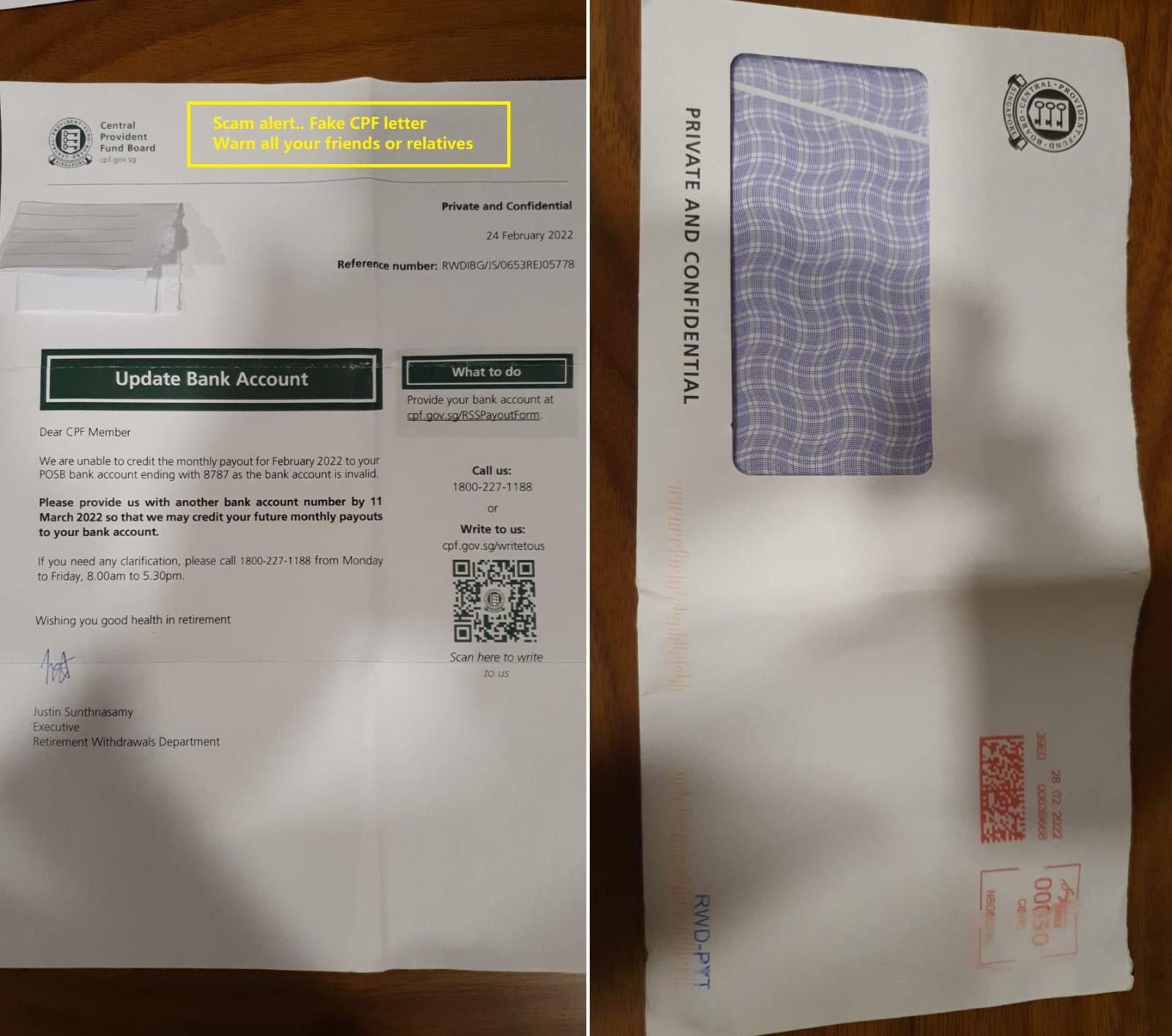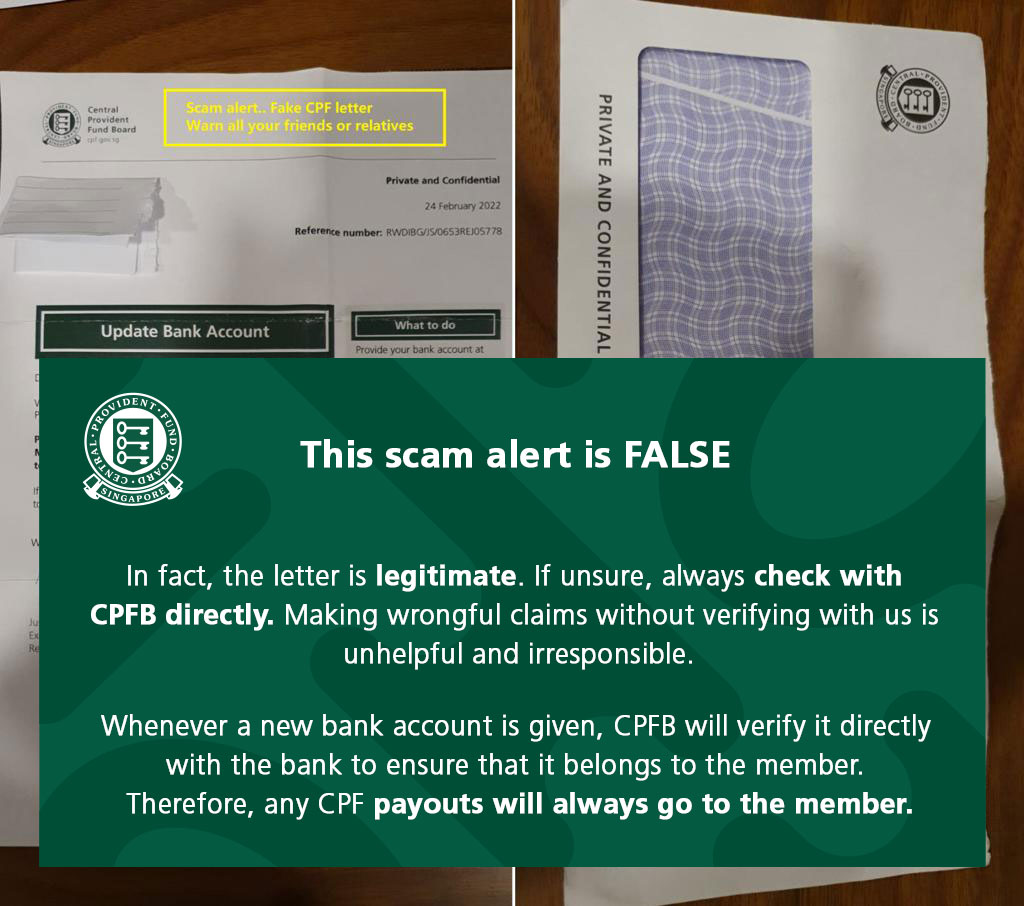CPF Board Debunks Scam Alert
Thanks to the prevalence of various scams in Singapore, people are now understandably suspicious.
In such a climate, even a letter from a legit Government body may be mistaken for a fraud attempt.
That was, unfortunately, the case when a ‘scam alert’ was circulated over WhatsApp recently, alleging that a Central Provident Fund (CPF) Board letter was fake.
The CPF Board has clarified that the letter is actually legitimate – and the scam alert is what’s false.
Letter asked recipient for bank account number
The image circulated over WhatsApp showed a letter that ostensibly arrived in an official-looking envelope.
It came complete with the CPF Board logo and the words ‘Private and Confidential’.
The letter itself also had the CPF Board letterhead and told the recipient that February’s monthly payout couldn’t be credited into their bank account.
It proceeded to ask the CPF member to provide them with another bank account number.
Whoever sent the image added a message in yellow on top, alleging that the CPF letter was fake and urging people to warn their friends and relatives about it.
‘Scam alert’ is fake
In a Facebook post on Friday (11 Mar), the CPF Board said the “scam alert” itself was fake.
They also urged the public to check with them directly if they’re unsure whether any letters they receive are fake.
Letter is legitimate
The CPF Board also clarified that the letter being circulated is legitimate.
They explained that they would verify any new bank accounts given directly to the bank to make sure it belonged to the CPF member.
This way, any CPF payout will always go to the member.
The CPF Board also took the originator of the false scam alert to task, saying it’s “unhelpful and irresponsible” to make such claims without verifying them with the CPF Board first.
Check with the authorities when in doubt
Given recent publicity, Singaporeans are now on high alert over scams.
In a way, it’s good to be sceptical, as that means you won’t be easily fooled.
However, do be wary of going in the opposite direction and regarding legitimate official correspondence as a scam.
The best way is to check with the authorities if you’re in doubt.
Have news you must share? Get in touch with us via email at news@mustsharenews.com.
Featured image adapted from CPF Board on Facebook.











